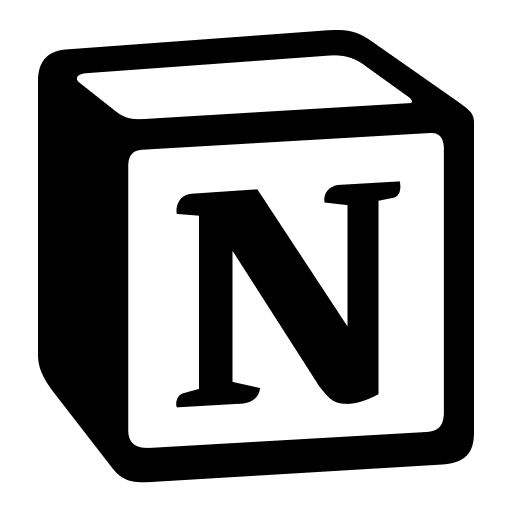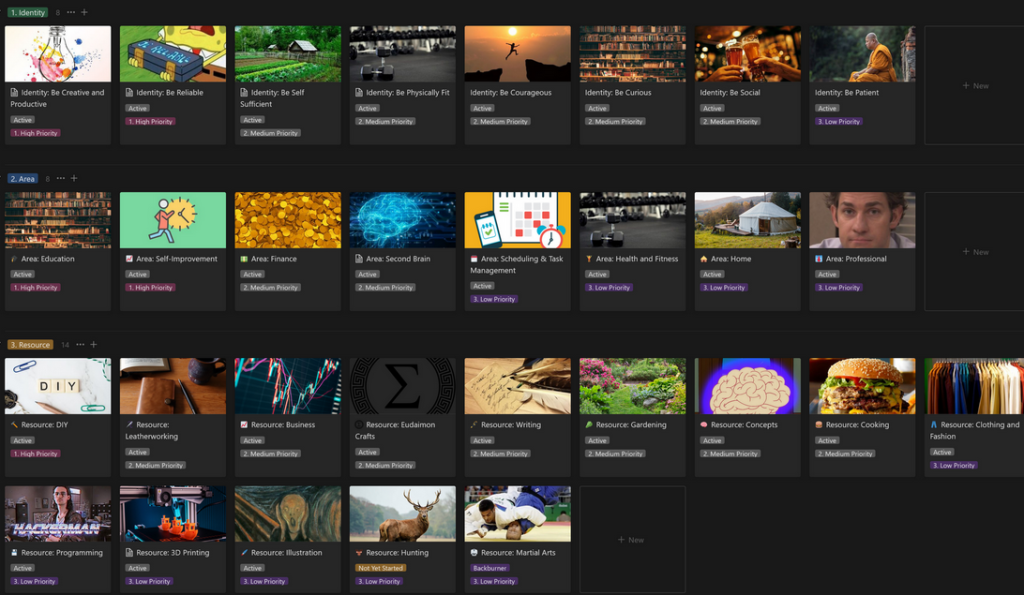
There’s a common refrain I often hear in the productivity community – “The brain is for having ideas, not for storing them.” This quote can be attributed to productivity guru David Allen, writer of “Getting Things Done”. I can definitely relate to the statement – as a devoted note-taker and second-brain enthusiast, I can full-well understand the value of outsourcing our memory to an external system. Writing things down, whether on paper or digitally, creates a permanent record of that thought, no longer subjected to the whims of fickle memory. To-do lists prevent plans from slipping to the wayside, and take some of the stress out of having to keep it all in our working memory. I’ve written plenty of articles on the value of keeping a second brain, and I track a lot of my life, work, and studies in a Notion database. Notes are great, and the advent of writing brought on an unquestionable revolution of human knowledge and communication.
That said, whenever I hear the statement I can’t help but feel it doesn’t give the brain enough credit. The brain is for storing ideas. Human memory, despite its many flaws and inaccuracies, is remarkable in many ways, and it stored knowledge long before we started writing it down. Certainly, the way it stores thoughts lacks the accuracy of externalized records – you will struggle to recall your exact thought, plan, or idea, and you might often forget things altogether. Yet the brain does something else. To make things memorable, it distills information into knowledge and knowledge into wisdom. We do not have the luxury of keeping reams and reams of tiny detailed notes in our minds, we’re forced to come up with concepts, models, and extrapolations. In the past we often did this with myths and stories, fables with lessons imbued with subtle – and sometimes not-so-subtle – meaning. Our love of story-telling to this day may well be a product of just how valuable this faculty is.
I’m sure some of our avid readers out there have had the same experience as me – after reading a book or article, you find that if asked about it, you could hardly muster even a passing summary. It takes a fair bit of effort, of actual study, and perhaps some practical application to boot, to take a book and really learn the content. This learning isn’t the same as pulling out your phone and reciting all the highlights you saved to your Kindle, either. Checking your notes doesn’t always cut it. To put these things reliably into your fickle human memory, you’re forced to pull out key concepts and relate them to your own experience and edifice of thought, to really understand it. Cognitive scientists call this process of forming mental frameworks a schema – a way of organizing and processing information in memory and integrating it with our diverse neural network. Schemas are flexible and changeable – this can be seen as a bug, but it’s also a feature. Sometimes flimsy memory sucks, sure, but we also want our thoughts and ideas to be able to change, adapt, and accept new information from our experiences. Schemas are in a sense the core of what an idea is, something separate from the raw fountain of information our senses take in.
There is another factor in human memory that your external second brain can struggle to replicate. If you close your eyes and try not to think for five minutes, you’ll quickly notice this is a downright herculean task. Even practiced mediators don’t always completely clear their minds of of this steady stream of thoughts bubbling to the surface, though they certainly become better at noticing them as they arise. One minute you’re focused on your breath, the next you think about how well you’re doing, fantasize about your future as a disciplined meditator, and speaking of the future, what’s for lunch? You might notice the sheer variety of things that come to your mind – sometimes mundane, sometimes bristling with inspiration, fed by both recent and long past memories. This having ideas doesn’t come from nothing. Your memory is constantly feeding you its contents, for better or worse, reminding you of that stupid thing you said ten years ago in high school, or giving you that funny feeling that you’ve heard something before – sometimes delivering you a spark of insight as you read, write, or chat. Each recursion of memory can change it a little bit, add a new twist, some new commentary, regret, or plan. A recollection of a book you read five years ago can be suddenly painted by new knowledge from the book you’re reading today. When it’s stored again, it’s no longer the same memory – it’s a memory or a memory, cleansed of some information with new things added. Sometimes retrieval of specific memories is a problem, you can barely muster a synopsis of a book you just finished on the spot, yet you might suddenly be able to pull an entire quote out of nowhere months later when prompted by an exciting conversation.
If you’re familiar with Greek mythology, you might recall the Muses, the goddesses who governed divine inspiration. Ideas. Their father was Zeus, king of the gods, and their mother? Mnemosyne, goddess of memory. Not only does your brain store ideas, but it imbues them with meaning, with lessons learned – sometimes with regret, sometimes with joy, and sometimes with some divine new inspiration. Without our own memory, we’re just an extension of the machine we built to remember for us. Ours is not the same memory as a notepad or database, and certainly David Allen is completely right in his assertion that outsourcing things like task management and phone numbers is valuable – but give your brain some credit, too. Not only that, give it some work to do. Sit down and actually study, actually feed it, give it information to chew on. Even try sometimes to memorize something like a poem by rote, just because you can, and enjoy the pleasure of being able to conjure it many years later – or even just that one verse that truly meant something to you. As valuable as an external system can be, don’t make the mistake of treating it as a replacement for good old-fashioned memory. The ideas your brain can have are only as good as the ideas your brain has stored – not your phone, not your notebook, your brain.


